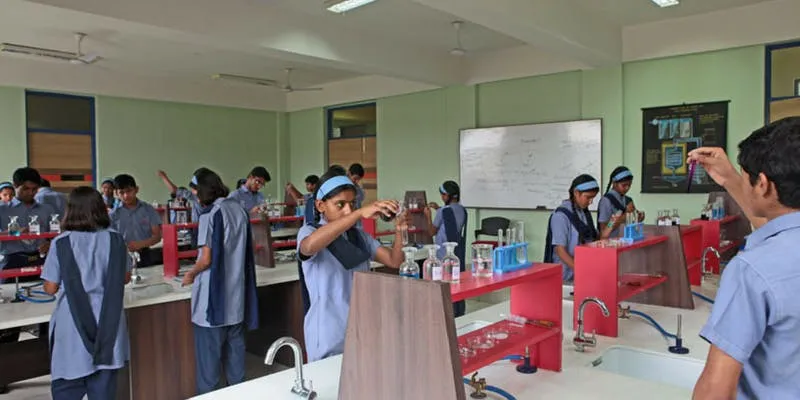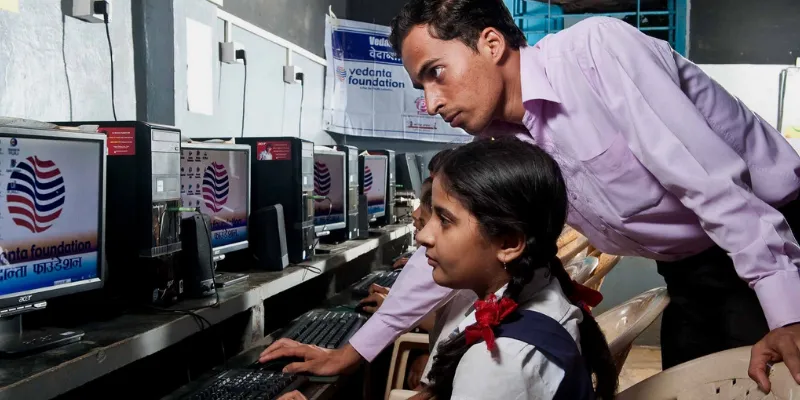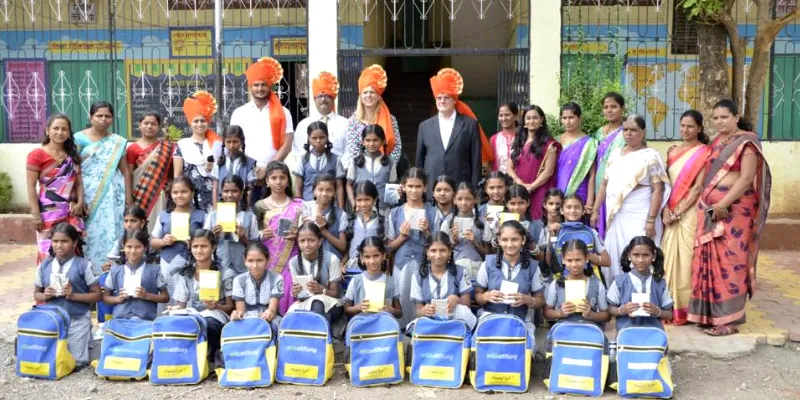Innovation, education, and healthcare — India’s billionaires turn to philanthropy to create social impact
India’s top business executives have pledged their support for multiple causes through their foundations and non-profit initiatives.

While giving is commendable, impactful giving is crucial.
Indian corporate organisations and businessmen have realised the importance of giving over the years.
Mumbai-based NGO Dasra, in association with consulting house Bain & Company, has released the ‘India Philanthropy Report 2018 — Understanding Tomorrow's Strategic Giver’, which reveals that most new-age donors are deeply passionate about the causes they support. It is this personal interest that inspires their philanthropy.
Arpan Sheth, Partner, Bain & Company and co-author of the report, states: “In a country where more than 35 percent of the population lacks access to a private toilet, and where 1.08 million children died before their fifth birthday in 2016, there is a need for individuals to not only contribute more, but also ensure that it is strategic enough to move the needle on key social development indicators.”
There are 800 million socially underprivileged people in India. To reach out to them and create an impact, self-employed individuals, entrepreneurs and family-owned businesses have contributed an average of $15,000 to $75,000 a year to philanthropy, while some have given in excess of $765,000.
Here is a list of some of India’s top business executives who have pledged their support for multiple causes through their foundations and non-profit initiatives.
Azim Premji
With an aim to facilitate a just, equitable, humane and sustainable society Azim Premji, founder of India’s largest software services company Wipro Ltd, founded the Azim Premji Philanthropic Initiatives Pvt Ltd in 2014.

Through the organisation, Azim Premji supports projects that can help transform the lives of the poor and the vulnerable communities in the country.
The organisation plays three roles — that of a funder, an enabler and an orchestrator— in its quest for enduring change at the individual, the community and the system level.
The foundation invests Rs 500 crore annually on not-for-profit organisations that are working to improve lives of street children and the disabled, as also governance issues. Few of their partner organisations include Childline India Foundation, EnAble India, Grameen Vikas Sanstha, Parivarttan, and Mobility India.
Earlier in 2001, Azim Premji founded the Azim Premji Foundation with an aim to provide access to primary education in rural areas.
Shiv Nadar
Shiv Nadar, founder and chairman of HCL, founded the Shiv Nadar Foundation in 1994 with an aim to create “a more equitable, merit-based society” by empowering individuals through transformational education, bridging the socio-economic divide.
“I believe education is the single most powerful tool for individual and social change,” Shiv Nadar says.

Through his foundation, the Padma Bhushan awardee has started multiple education institutions — VidyaGyan, Shiksha initiative, Shiv Nadar school, SSN institutions, Shiv Nadar University, and Kiran Nadar Institution of Art — providing access to education to over 12,000 children in rural areas. In 2016, Shiv Nadar donated Rs 630 crore to various charitable initiatives, including healthcare, through his foundation.
Anil Agarwal
Anil Agarwal, founder and Chairman of Vedanta Resources Plc, founded the Vedanta Foundation in 1992 with an aim to empower and educate the underprivileged section of society by enhancing their basic skills set and facilitating them to join the mainstream.

The foundation works to provide basic education to school children, child nutrition, essential vocational training such as computer literacy, women’s empowerment and helping youth get jobs thorough its livelihood programmes. It partners with the government, corporate entities, and civil society to create a sustainable impact.
In 2013-14, the Vedanta foundation invested $49 million in building hospitals, schools and other infrastructure, conserving the environment, and funding community programmes that improve health, education and livelihood of over 4.1 million people. In 2015, the Vedanta group in partnership with Ministry for Women and Child Development inaugurated the first 'Nand Ghar' or modern anganwadi.
Anand Mahindra
Anand Mahindra, chairman of the Mahindra Group, founded Nanhi Kali in 1996 to support education for underprivileged girls in India.
“Girls’ education correlates with a reduction in child and maternal mortality, improvements in child nutrition and health, lower fertility rates, better economic production, and female empowerment,” he says.

Students who are a part of Nanhi Kali receive both financial and academic support from Anand Mahindra’s NGO Naandi Foundation and the KC Mahindra Education Trust. They attend special classes to learn mathematics, science, and language concepts. Nanhi Kali sponsors the "hidden costs" of their education, providing pencils, notebooks, school bags, uniforms, clothes, and shoes. As of September 2017, the project has supported 1,30,000 underprivileged girls.
Anand Mahindra also donated $10 million to support the Harvard Humanities Center.
Vineet Nayar
Vineet Nayar, former CEO of HCL Technologies, founded Sampark Foundation in 2005, to create a “large scale” social change through frugal innovation. His wife, Anupama Nayar, who is the co-founder of Sampark is a special educator. The NGO attempts to improvise upon the teaching methodologies, especially to impart rudimentary Mathematics and basic English language skills with the help of better, easy-to-comprehend tools and techniques.

“They say the most uplifting of human endeavors are those that bring a smile on a person’s face and a hope in the heart. At Sampark Foundation we are a group of believers who have come together for a cause bigger than singular identities; a cause called ‘unleashing a million smiles,” Vineet says.
Building on Tim Brown’s Design Thinking Principles to solve the problem of poor comprehensibility, the Sampark Foundation has developed a Smart Class Kit— a low-cost, high-performing educational tool for spastic children.
The foundation has designed a unique interactive kit that uses various child-friendly teaching aids to make learning fun, easy and interactive for children. This kit includes a simple audio device called Sampark Didi. With control buttons, a speaker set, an LCD panel and a MicroSD card pre-loaded with lessons, Sampark Didi looks like a portable radio transistor and is mainly used to teach two subjects, Mathematics and English.
The Sampark Smart Class Program today reaches three million children studying in 50,000 schools in Uttarakhand, Jammu & Kashmir and Chhattisgarh, making it one of the world's largest primary school transformation initiatives by a foundation. The Sampark Smart Program impacts seven million children studying in 76,000 schools.







